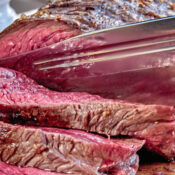 I want to be famous.
I want to be famous.
This presents one immediate obstacle, as Jenny does not hesitate to point out whenever I mention it.
“Famous for what?” she asks, scraping the few bits of apples and dumplings she served with her pork roast from my dinner plate into the can where she collects stuff for composting.
I leave the warm kitchen and go outside to my workshop, my sanctuary, and one day, my portal to fame. Every idea and plan I ever had is filed there, along with the Wikipedia entries of every member of the Inventors Hall of Fame from Acheson to Zworykin. I study them, looking for that key factor that connects us all.
It is a little cramped, my workshop. There is the unopened air purifier Jenny gave me five Christmases ago, next to all the old computers I have replaced over the years. You have to be on the cutting edge of technology to lead the way.
The following night I bring home a new computer.
“You just got one. Why do you need a new one?” Jenny keeps our household budget because I never have time to know the cost of two chicken legs. And each time I buy a new machine, she says the same thing: “Well, we’ll just eat dog food this month.” Tonight I smile at this over my last forkful of her strawberry rhubarb pie.
“I think this will be it. I am so close,” I casually say.
“Hmmph,” or a sound like that, comes out of her lips as she clears the dishes. I retreat to my workshop.
It’s true, about being close. I decided it was time to leave the base camp, to make the final push for the summit of my Everest and I went through all 283 ideas and plans. Jenny would be shocked to see how systematic I have been. Whenever she picks up my pants and T-shirts from the floor, she always complains about my disorderliness. When I reply that 35 years of successful actuarial work at Guaranty Life Assurance couldn’t have been done without order, she just says “Hmmph,” and marches out to her laundry room. I think that’s her favorite word.
College was where I first studied math and dreamed about the Fields Medal, but those never go to people who have jobs, a wife, demands to be met, bills to pay. Besides, I passed the age limit for the Fields 25 years ago.
There are only a limited number of ways a person can become famous. The surefire way is with an award, like a Nobel Prize or one of those genius grants. Those people often take years to lay the foundations for their ultimate accomplishment. Within those years, they don’t have the distractions or demands that I have had to devote to Jenny, the family, and to Guaranty Life. With no secretaries, assistants, or helpmates, there is no way that sort of life could have lead to a Nobel Prize.
It’s not like there weren’t accomplishments, though. Above my desk, framed and laminated, is an article from Actuarial Monthly News about my retirement dinner, at the Kon-Tiki restaurant. It’s a nice long piece, although it does not mention that I did not want to retire, that I went from adding machines to computers without difficulty, that I should have been the damn vice-president who engineered my retirement. It didn’t even refer to an earlier article about the equations I created, using large-purchase data to adjust life expectancy and how it saved the company thousands, millions even.
Back to the subject at hand, the path I have chosen to achieve my fame. I was noodling around one evening in my workshop. Something Jenny said, an “I don’t have time now” thrown over her shoulder as she went off to match up my socks, kept ricocheting around my brain.
Time. The fourth dimension. And if mathematical equations defined the other three dimensions, the fourth dimension must have them too. If I defined it, I could manipulate it. H.G. Wells merely wrote a fictional tale about time travel, and he is still remembered for it. Actually doing it would be exponentially better.
The math was, to be sure, rather daunting. It whirled around my head so much that for several weeks I was unable to get back to sleep after getting up in the middle of the night to pee. It has taken sheer will to achieve my ultimate route to renown. I am sure a pure mathematician would call it elegant.
Beautiful as they are, equations are not enough. A demonstration is necessary, one so conclusive that everyone, from fellow inventors to ordinary citizens like Jenny, will understand it. That’s why I have decided that the ideal demonstration of my conquest of time is to kill Jenny. I don’t mean I literally kill her, just arrange for her to go elsewhere in time, and when everyone is convinced she is dead, demonstrate her return and my fame is guaranteed.
Wikipedia is my browser home page. It’s where I always start my research and where I now learn that an average of seven people fall overboard from cruise ships each year and almost all become shark chum. One of Jenny’s constant nags is about going on a cruise. It’s perfect; two leave on the cruise, one comes back.
After two years, a court will need to declare her officially dead. I could discretely invite some media and perhaps have it streamed live on the Internet. In any event, just before the judge pronounces Jenny dead, I will jump up.
“Wait a minute, Your Honor,” I will shout. “She’s not dead.” Here I will pause for dramatic effect. “I have just moved her back in time.” Pandemonium when I produce her.
There are so many details. For one, those equations need to be fed into a 3-D printer to create the mechanism, ingeniously small enough to fit into a camera bag I can carry on board the cruise ship! I also create a failsafe system that will bring her back in the unlikely (9.3 percent) chance I die prematurely. Every detail has been recorded in a notebook, for future scholars and biographers.
All this excitement has whetted my appetite, and I lock the door to the workshop before heading back to the house for dinner.
Jenny brings her beef bourguignon to the table.
“My dear, my efforts are bearing fruit, so to speak,” I say.
“You are close?” Jenny asks from the kitchen, then returns with a bowl of glazed carrots and her wonderfully creamy mashed potatoes.
“More than close. It’s just about a done deal, a triumph even.”
“Oh,” she says. She sounds almost disappointed.
“What’s the matter?” I ask.
“Well, I got you a gift, and now I am not sure if you will need it,” she says, her eyes downcast.
“You got me a gift? I am touched. And do you know what is ironic? I have a gift for you, to make up for all the time that I left you for my workshop,” I tell her, filling up my plate. It is so fragrant, rich, and meaty; I pour on some extra sauce.
Jenny gets up and heads toward our bedroom. This allows me a few good forkfuls of the savory beef, sweet carrots, and smooth potatoes before she returns, holding not a box, but her own laptop.
“George, here is what I wanted to give you. With presidents and movie stars and Albert Einstein, your own Wikipedia entry!” Jenny twirls the laptop around and presents the screen to me.
And so it is. Not a stub, even, but paragraphs, sections, even the photograph from my retirement party. I read it all quickly and then a second time, awestruck that it is so substantial and detailed.
“This is fantastic, Jenny. However did you do it? How long has it been up?” I wonder how many hits it’s received.
“Three days,” she answers.
I sigh. Soon, anonymous editors will recognize it as a vanity entry and demand that it meet the rigorous standards of reference to publicly available facts.
“Thank you, Jenny. This is a wonderful trifle, however transient it may be.” The cruise tickets will look so much better next to her little effort.
“Transient? Why transient, dear?” she asks, in innocent ignorance.
“Well, dear,” I explain. “All the facts in a Wikipedia entry must be verifiable using publicly sourced documents. You just can’t make things up.”
“Oh, but these are sourced. Every fact. Well, some won’t be available for a few days but they will be in the paper.”
I reach for the water glass. The beef bourguignon is unusually dry in spite of the extra sauce I poured over it.
“What do you mean, what source are you talking about? Those Actuarial News articles are years old.” My words sound as if I am trying to imitate Demosthenes with a mouth full of marbles.
Jenny stirs the pot of stew. I can smell rosemary, wine, oregano.
“How do you feel, George?” Jenny asks me.
“Fine,” I say, though I am clearly not.
“I suppose I should be sorry, George. But I am not. Even before you disappeared all the time into that shed, I grew to know you less and less. So with that shed, what did you do in there? You never shared it with me, even when I asked, and finally I couldn’t take it anymore. When you were out at the hardware store the other afternoon, I went in there.”
I can feel the muscles around my eyes straining as I try to widen them.
“I found your notes. George, right out in the open. Right there. I read your plan to kill me on the cruise. And it just did not seem fair.”
She walks to where I am seated and stands over me. Her eyes look sad, moist.
“I told myself for years that it was fair. You provided and I kept the home and raised the children. It was hard but I told myself that it did work, that we did our part for each other. But I see that to you I am just another piece of equipment for your crazy schemes,” she tells me.
I try to speak, but for some reason I cannot. She puts her head under my arm and pushes up, lifting me to my feet. I can barely shuffle with her to the bedroom, where with a twist, she drops me onto my side of the bed we have shared for, what was it, 47 years?
“The stew was very flavorful tonight, wasn’t it?” Jenny is truly crying now. “It simmered for hours, before I added the Botox. I found the supply via an email offer. Spam I think you call it.” She leaves me. I can hear her in the kitchen pouring the sauce into the compost can. She comes back, and leans into my field of vision, her hair, backlit by the bedside lamp, is the same blond as when we first met. The angle of the light smoothes her face. Her green eyes look into mine, like she used to.
My mind is racing, even if I can barely move a millimeter. It is an ingenious plan. I have to give her that. As good as I could have done. Maybe, even a little better.
The best thing is that, whether she is caught or gets away with it, the result will be the same. I have a Wikipedia page!
I wish I could thank her.
Become a Saturday Evening Post member and enjoy unlimited access. Subscribe now



